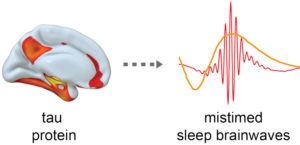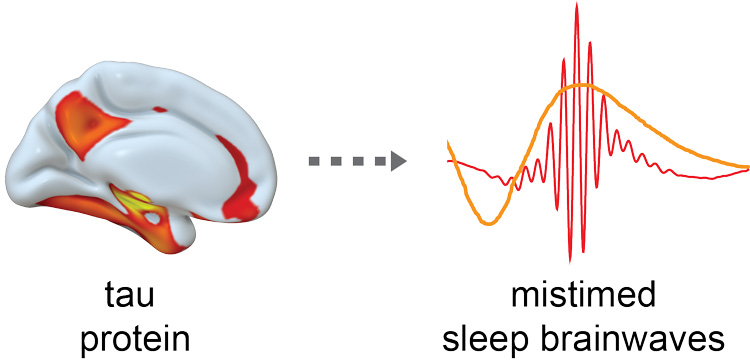
Greater levels of pathological tau protein, primarily in the brain’s medial temporal lobe (orange and yellow at bottom in cross section of the brain), were associated with weaker synchrony of slow waves (red) and sleep spindles (orange), two brain waves important for storing memories while we sleep. (Credit: Matthew Walker and Joseph Winer/UC Berkeley)
Research led by UC Berkeley scientists found that adults who reported a decline in sleep quality in midlife (40s–60s) had more beta amyloid and tau clusters in their brains—both of which are associated with a higher risk of developing dementia later in life. The same study also revealed that people with high levels of tau protein in their brains were more likely to lack the synchronized brain waves that are crucial to getting a good night’s sleep. Together, the findings suggest that sleep changes detectable in a simple overnight sleep study may serve as biomarkers for later risk of dementia.
The participants were part of the Berkeley Aging Cohort Study (BACS), a group of healthy older adults who have had their brains imaged using a PET scanner at Berkeley Lab operated by William Jagust, a senior faculty scientist in the Molecular Biophysics and Integrated Bioimaging (MBIB) Division. PET is the only technique capable of detecting both beta-amyloid tangles and, very recently, tau tangles, in the brain. Jagust and Suzanne Baker, research scientist in his lab, were co-authors on the paper reporting the results, which was recently published in the Journal of Neuroscience.
Read more on the UC Berkeley News site.




